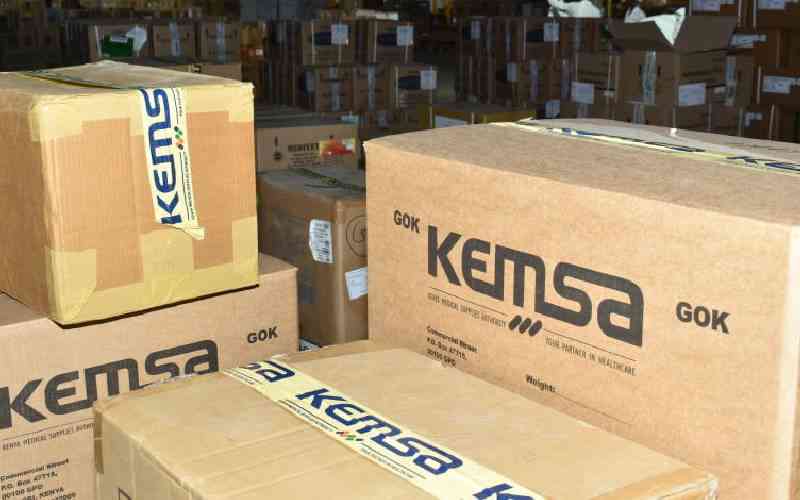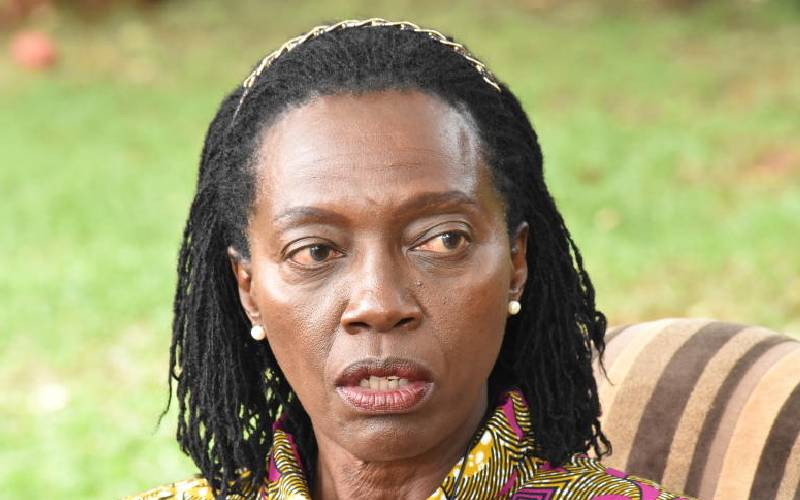Kenya: Alexander Nderitu’s first attempt at publishing was at age 13 and he would make comic books out of exercise books glued-together.
Although the story lines were heavily plagiarised from the Flash Gordon series, to Mr Nderitu, his comic books were bestsellers.
“I would go around with my ‘comic books’, showing them to my classmates and they were really impressed. I got so immersed in my art that for some time, my classwork became secondary,” he said, during an interview at last week’s Storymoja Festival.
Making history
In 2001, the publishing bug bit him again and he made history by publishing Kenya’s first e-book — the140-page thriller, When the Whirlwind Passes.
The following year, another writer, Binyavanga Wainaina, self-published online and became the first Kenyan to win the Caine Prize for African writing with his story, Discovering Home.
A year later, Mr Wainaina founded publishing house Kwani?, which in the same year published Yvonne Owuor’s Weight of Whispers and bagged Kenya another Caine Prize.
After a 10-year hiatus, the Caine Prize came back to Kenya this year after Okwiri Oduor, one of two shortlisted Kenyans, won for her story, My Father’s Head.
Kenya’s publishing industry has been ranked one of the most advanced in sub-Saharan Africa. Although a distant third to the continent’s literature powerhouses Nigeria and South Africa, authors and publishers in Kenya are seeing an improvement in fortunes, but are quick to say things could be better.
The industry, which is worth an estimated Sh10 billion, is still heavily reliant on educational books as these have bigger margins compared to novels and story books.
According to consultancy firm PricewaterhouseCoopers (PwC), Kenya’s books market is showing signs of maturity after rapid revenue growth in 2010, when year on year growth was at 7.7 per cent, jumping to 17 per cent the following year before dropping to 6.5 per cent in 2012.
PwC says publishers can expect to see annual revenues stabilise at around $37 million (Sh3.3 billion) annually over the next three years.
For Monity Odera, who has worked at three publishing firms over the last 10 years and is currently the managing editor at Storymoja, the numbers do not adequately tell the harrowing tale of the challenges Kenya’s publishers face.
INEVITABLE REALITY
“Publishing is a very costly affair and for most publishers, a reliance on textbooks is an inevitable reality,” she said.
Stay informed. Subscribe to our newsletter
“Currently there is an anticipated curriculum change and most publishers in the industry are keenly following the process to see what developments come out of that.”
A curriculum change means the process of gradually phasing out old text books will begin as the Government approves new titles, providing new opportunities for authors, publishers and bookstores.
It, however, takes a lot of time and resources to publish new titles, with stakeholders having to contend with fixed margins that leave little room for growth.
“It takes about 12 weeks to review a manuscript, which often goes through at least two expert reviewers,” said Ms Odera.
If the manuscript is accepted, it is then taken through an editorial board that comprises representatives from the editorial, marketing and finance departments of a publishing firm to evaluate the viability of the title.
“If approved, we put the manuscript in the publishing plan. We usually set a cap of between 60 and 65 titles that we can publish each year,” she said.
Unfair competition
However, for many Kenyan publishers, the hardest part of the entire process is yet to come, and huge costs and difficult logistics loom large.
Printing good quality books is very expensive and publishers put in a lot of money upfront without the assurance they will get any money out of it.
“The first print run is often a loss for many publishers because you use up to 30 per cent of the cover price to print and you still have to give bookshops discounts of between 30 and 40 per cent,” said Odera.
The remaining percentage is used to pay overheads like salaries and marketing for the book, as well as pay authors between 8 and 12 per cent in royalties.
The situation is worse for consumer books, because unlike educational books — which are often supported by donor funds, non-governmental organisations and bulk purchases from the Government they move slower.
Further, international titles have flooded the market, most sold by street vendors at a fraction of the cost of locally produced books, providing “unfair competition” for local authors.
PwC states that despite an overall improvement in the country’s spending power over the past years, consumer books still represent a paltry 6 per cent of Kenya’s publishing industry.
According to Kenyan poet Clifton Gachagua — who won last year’s inaugural Sillerman Prize for African Poetry with his anthology, The Madman at Kilifi — appreciation for literature in the country is still subdued, but there is more interest in Kenyan content.
“There are so many people out there generating good content in poetry, fiction and non-fiction, and every day you see something new and amazing.”
Low costs
However, he admits most creative writers have to supplement their income, particularly early on in their careers when they are still unknown.
“It normally takes some time to get the kind of exposure that you would need to have publishers engage you and give you a good offer,” Mr Gachagua, who is finalising his first novel, said.
He is one of the founders of jalada.org, a new pan-African writers’ collective that has published two online titles from young writers and poets in Africa, including Kenya, Zimbabwe and Uganda.
Nderitu, who has self-published three titles online, said technology has offered options that have helped many young people get published, and has boosted the local industry.
“And because production costs for e-books are very low, authors get good margins on their books, with some platforms giving up to 80 per cent in royalties,” he said.
“When I started out I had more readers in the US than in Kenya, and I then decided to use my website and have payment methods like M-Pesa and Airtel Money incorporated, which Kenyans can relate to.”
He initially priced his books at Sh300, and says he sold some books, but traffic was not impressive.
“Then I halved the cover price and the uptake was tremendous, with some buyers taking all three titles at once.”
Self-publishing eliminates production and distribution charges and allows for aggressive marketing strategies, he added.
And for readers who still want the traditional feel of paper, many e-book vendors, such as Amazon and Lulu, offer print-on-demand solutions where one can order a printed copy of an e-book, albeit at a higher price.
[email protected]
 The Standard Group Plc is a
multi-media organization with investments in media platforms spanning newspaper
print operations, television, radio broadcasting, digital and online services. The
Standard Group is recognized as a leading multi-media house in Kenya with a key
influence in matters of national and international interest.
The Standard Group Plc is a
multi-media organization with investments in media platforms spanning newspaper
print operations, television, radio broadcasting, digital and online services. The
Standard Group is recognized as a leading multi-media house in Kenya with a key
influence in matters of national and international interest.
 The Standard Group Plc is a
multi-media organization with investments in media platforms spanning newspaper
print operations, television, radio broadcasting, digital and online services. The
Standard Group is recognized as a leading multi-media house in Kenya with a key
influence in matters of national and international interest.
The Standard Group Plc is a
multi-media organization with investments in media platforms spanning newspaper
print operations, television, radio broadcasting, digital and online services. The
Standard Group is recognized as a leading multi-media house in Kenya with a key
influence in matters of national and international interest.







